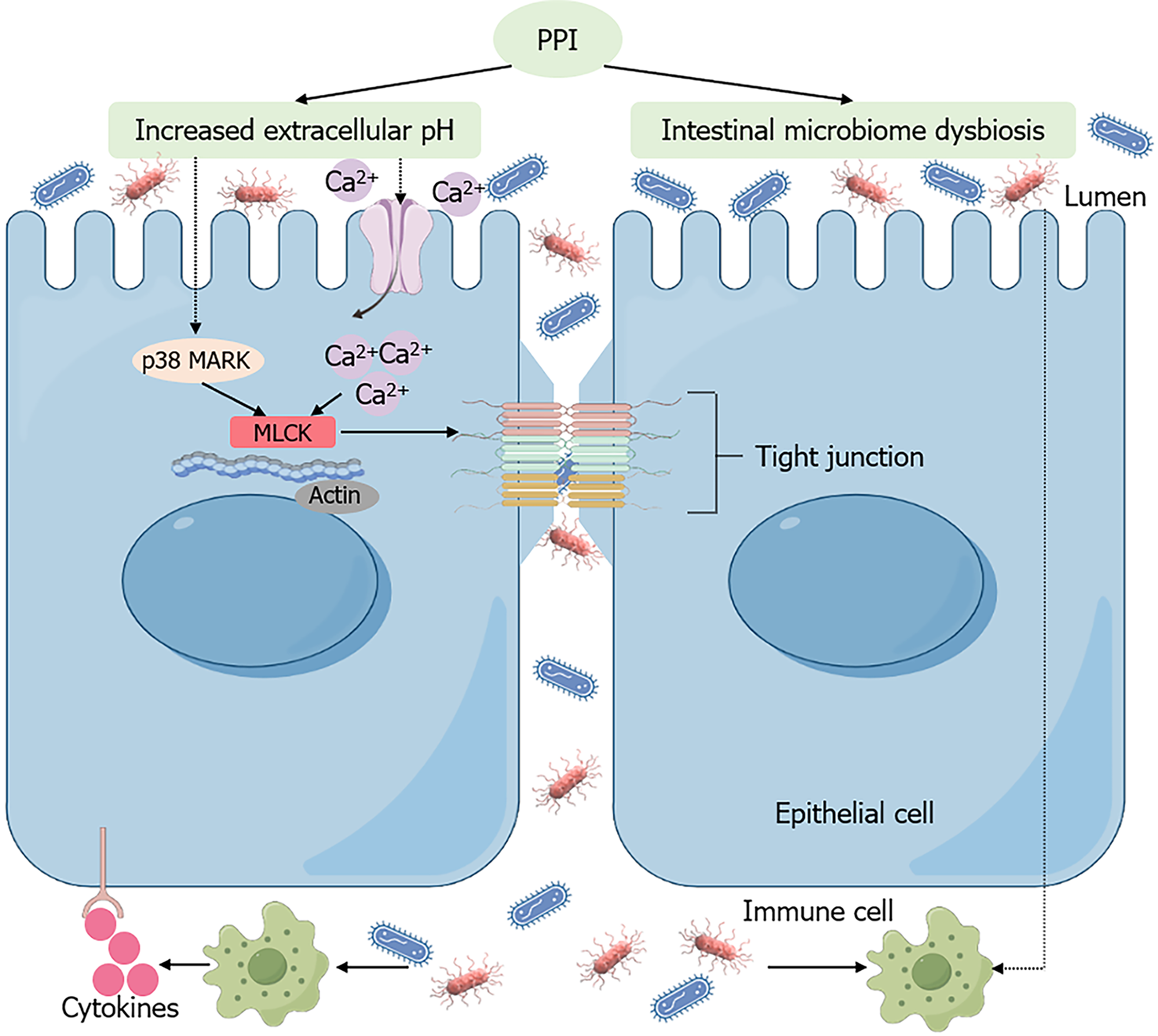Copyright
©The Author(s) 2024.
World J Gastroenterol. Jun 7, 2024; 30(21): 2751-2762
Published online Jun 7, 2024. doi: 10.3748/wjg.v30.i21.2751
Published online Jun 7, 2024. doi: 10.3748/wjg.v30.i21.2751
Figure 3 Impact of proton pump inhibitors on the intestinal mucosal barrier.
Proton pump inhibitors (PPIs) can increase the permeability of the intestinal tight junction (TJ) by activating myosin light chain kinase (MLCK). Increased extracellular pH induced by PPIs activates and upregulates MLCK expression via p38 MAPK. PPIs may promote an increase in intracellular calcium concentration, which also plays a crucial role in MLCK activation. Additionally, the PPI-induced increase in pH may increase the number of Gram-negative bacteria and cause dysbiosis of the intestinal microbiome, resulting in increased intestinal permeability. The intestinal microbiota translocases through the TJ and stimulates the immune system to induce or exacerbate inflammatory bowel disease. PPI: Proton pump inhibitor; MLCK: Myosin light chain kinase.
- Citation: Liang Y, Meng Z, Ding XL, Jiang M. Effects of proton pump inhibitors on inflammatory bowel disease: An updated review. World J Gastroenterol 2024; 30(21): 2751-2762
- URL: https://www.wjgnet.com/1007-9327/full/v30/i21/2751.htm
- DOI: https://dx.doi.org/10.3748/wjg.v30.i21.2751









